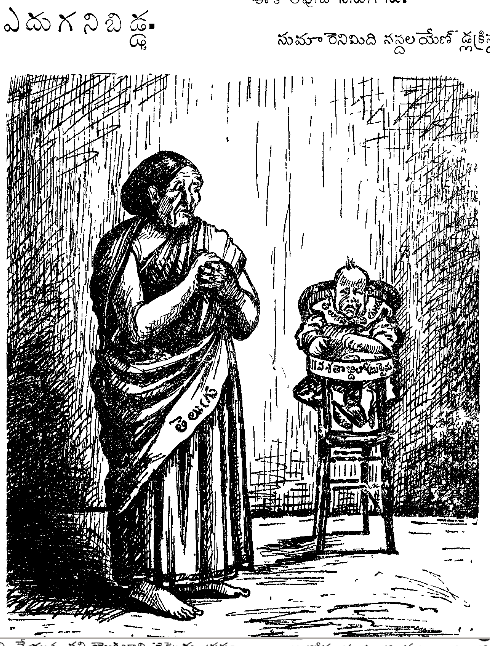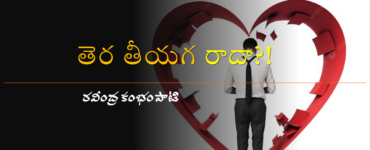Having grown up on a staple diet of traditional children’s literature, Hindu epics and classics, my take on what a short story is has pretty much been “just about anything”. If you consider modern short stories, especially after diving into some world literature, this may seem like a rather unsophisticated viewpoint. Perhaps it is, too. What is a good story for you? To me, it is one that engages me and lingers in my thoughts, be it for a day, a decade, or a lifetime. It can captivate me with a compelling ‘slice of life,’ evoke laughter, tears, excitement, contemplation, or simply impress with its brilliant narration, even in the absence of a traditional plot. As a humble reader, I am happy to embrace all these under the umbrella of a ‘good story’.
With that working definition, I think we need to make room for a variety of stories as readers. Stories that explore lives unseen in fiction before, stories that push the boundaries of narrative techniques, stories that are only rants which let emotions flow unobstructed, stories that are crafted beautifully showcasing the author’s skill with language, stories that are full of twists, stories that align with our ideology and those that question it, stories that ask profound, universal, questions, stories that delve into the complexities of life and mind, stories about mundane lives of boring people, stories that are deliberately offensive, those that are unintentionally so – there should be a space for all of them in the literary world. Don’t cancel stories! If we acknowledge that absolute objectivity is impossible in responding to something as inherently subjective as literature (even a well-informed critique is, in my view, just another opinion), would that awareness refrain us from censoring stories?
In this spirit, I want to share a 100 year old Telugu story (translated by my non-canceling self). I was introduced to this story in 2013, in a book on early Telugu short stories by K.K.Ranganathacharyulu. It won’t read like a story for a literary theorist, and I am sure no Telugu or English editor will accept it today, but it had a significant impact on me as a reader. Ten years after reading it for the first time, I am still looking for ways to bring it into some conversation with a fellow reader somewhere! I believe it is worth reading for any literature enthusiast. This space gives me an opportunity to share it, so, here we go!
The original story is titled “ఎదుగని బిడ్డ” (edugani biḍḍa) and was written in 1914, by Akkiraju Umakantham, a renowned Telugu and Sanskrit scholar of his times. “Telugu talli” (literally: Mother Telugu) is a popular feminine personification of the Telugu speaking people and their culture. Metaphorically, this author considered Telugu language an offspring of “Telugu talli” in this story. He held a view that the evolution of Telugu language has stalled at some point, and wrote this allegorical short story that traces the status of the language over centuries. The story is written as a mother’s monologue to the reader about the health of her child, and the author’s language is a mix of poetic descriptions and a more informal, conversational tone of an elderly person. Although there isn’t much in terms of a plot and its progression, the story is unique in terms of its narrative device i.e., a culture narrating about its offspring, the language of its people. That this story appeared over a century ago in Telugu with this narrative style made me choose this story for translation. I hope it will engage you too!
Original Title: ఎదుగని బిడ్డ (edugani biḍḍa, 1914; Telugu)
Author: Akkiraju Umakantham
Author Bio: Akkiraju Umakantham (అక్కిరాజు ఉమాకాంతం, 1889-1942) was a scholar in Telugu and Sanskrit, and wrote several books on literary theory and criticism in Telugu. He also translated Shakespeare’s plays from English to Telugu, and is among the very early modern short story writers in Telugu. Several of his short stories, including the current one, appeared in “Trilinga”, one of the early Telugu magazines that began in 1914 and ran for over five decades.
Add: ఎదుగని బిడ్డ
Copyrights: The work is outside the purview of copyright as per the Indian copyright act of 1957, as it is 60+ years since the author’s death, and I could not get information about any living family members.

***
The Ungrown Child
In this world, some live the burden of childlessness, some wrestle with dire poverty, and there are others who endure endless physical suffering and hunger everyday. Whose struggles should command more attention from a compassionate bystander? I can relate to your plight, but allow me to tell you my story. Believe me, you would eventually agree that this story is worth your time. Sorry, I cannot speak louder than this. I am old, of a bygone era.
I bore my child about 800 years ago. No, I am not lying. The great emperor Raja Raja Narendra, the 11th century Chalukya king who patronized many poets and scholars, bit his tongue in amazement, when he looked at my child’s features. Holding the infant in his arms, he bestowed generous gifts and swathed the baby in resplendent, multicolored swaddling cloths. And, what should I say about the admiration my child received from others of that era? Some of them were at least aware of the reasons for heaping high praise on an infant, a few did not even bother and just extolled. Let them be, for I, too, complimented myself too for giving birth to my son.
“With such patrons, my baby would sleep in those royal cribs, grow up with their golden blessings, and live in those diamond studded palaces”, I was filled with happiness. Some say such luxury is a result of the good deeds of past life. How does it matter, though? In my view, this discussion about past life is pointless.
The child never left the palace, and was always held in someone’s arms. I visited my own child during the day, as if I were just a caretaker. The mother in me worried about my baby’s well-being in my absence. “But, he is taken care of by the royalty. He will be fine”, I would tell myself. As years went by, my child’s appearance changed and his name spread far and wide.
Kings and kingdoms are not stable, though. They rise and fall. One king defeats another, to be defeated by some other. Despite this, each new king treated my child the same way as the great Raja Raja Narendra did. If the king was busy, his minister pampered the child, and if the minister was busy, the king took over again. My child never walked on the floor and his feet never touched the ground. Everybody adored him. Gift after gift was lavished upon, and the child was covered from head to toe in expensive clothes. Such was the glow on my son’s face that everyone wanted to pamper him.
Okay, I will not bore you further with all the details of this daily glory in the years that followed. Some years passed by like this. Soon, I realized that there is something wrong. He was an ungrown child.All those fancy clothes and the ornaments that adorned his body just hid the reality from me. While some people tickled the child to amuse him and make him smile, some entertained themselves by listening to his baby talk. No one actually paid attention to the child’s developmental milestones. Which king lived long enough to track the growth of my son, anyway? He was a well-behaved kid, used to living a comfortable life. All the kings who patronized him loved him. Each new king saw him as a young child, and no one bothered to ask when the child was born, how old he was, and how the child’s growth progressed. Where would they find time to make such detailed enquiries, amidst their many royal responsibilities?
My child and I were fortunate to some extent, though. I worried the royalty would abandon him because he was ungrown. But no one seemed to have noticed it amidst those garments and ornaments.
What is there for me to hide now, though? The child’s face lost its shine over time, and he started to look ugly. That face, which was once as bright as a white jasmine flower, now looks old and jaded. What do you think? The child is getting older, of course. If the whole body grows accordingly, the old look on the face seems appropriate and mature. But, the legs now look as thin as sticks, and yet, the stomach appears bloated. How can I tell you? My heart burns like a potter’s kiln each time I look at my child’s face.
He neither crawled nor walked. Is he possessed? Is he under the spell of a witch? I worried about him constantly not knowing where to seek help from.
“He was under the patronage of kings, he could have got everything that is necessary”, one may say. Yet, I worried how the royals would react when they eventually learn that he is an ungrown child. What if they abandoned him? I felt my stomach churn each time I witnessed some child’s thread ceremony or wedding. There was a kind of sadness when he was near me, and there was one of another kind when he was not around. I considered bringing the child home to live with me, but I would have to confront the kings to do this. So, I backed out. Anyway, he was being raised in luxury and drank milk in a golden cup. How could I keep him happy if I brought him out of that comfort?
It felt like witnessing knee length happiness while being in a deep gloom waist down. At least he opened his mouth, ate and drank the milk, fruit or rice, whatever was offered now. Rose water baths, perfume fragrances, and flower garlands – how could I describe my child’s grandeur when he was under the patronage of our kings?
He was showered with expensive gifts, gold and money. Whether the king sat on a throne or an elephant, my child sat along with him. There was no one who was not amazed at his good fortune. Many years went by like this. I kept searching for signs of growth in my child in vain, and my disappointment persisted. I cried, unable to comprehend my child’s ailment, and wondered if he would have been alright had I raised him at home, like everyone else, instead of leaving him under kings’ patronage.
Please don’t ignore my talk as an old woman’s rant.
All days are not the same. Over a period of time, the fights among kings increased, and the Muslim kings took power eventually. I worried about my baby’s safety in the pandemonium that ensued. These new kings weren’t exactly known for their kindness. “What kind of a language is this?”, one of them said disparagingly. I calmly got my child home soon after.
However, when one Muslim king rejected him, another took him under their patronage after some time. It went on like this for a while. Since my son was well-known among the royal circles, everyone treated him kindly when I took him to visit the courts of local rulers and other rich people. I eventually started looking after him at home, but he did not grow an inch. The face became bigger, the head went bald, and the hands and legs were in poor shape. Seeing him like that drove all my resolve away and made my heart sink again.
No one could find out the reason for my child’s condition. He was clearly not a dwarf, as dwarfs have some physical growth. There was no name for this condition. I was drowned in worry every single day.
Then, the white men arrived and everyone said they were kinder rulers. So, I hoped for them to pay attention to my dear child. One nodded indecisively after listening to my story. Another looked at him from a distance and threw a few coins as alms. The third one expressed pity and the next one turned their face away in disgust. No one held him closer or embraced him.
Of course, I am deluded, dear listener! My child would never see the past glory again. Those times and those kings are gone. Who will want to support such a child now, anyway? I just entertain vain hopes.
Leaving my hopes aside, nobody bothered to at least enquire what is wrong with the child. No one asked how he was doing. As his mother, I could not be like them, though. So, I lead my life praying to God every day, hoping to find a kind-hearted ruler who could help us.
Those who are younger to my child grew up well and flourished, much to the happiness of their mothers. They earned some name and fame among people, by themselves. Everyone respected them, and showered them with gifts. Traveling around the world, they learned many skills and studied the arts and sciences. They could stop the wind from blowing, the water from flowing, and the fire from glowing, apparently. Everyone praised all these other children as if they were gods that walked on earth. They stood tall, as if they were Lord Brahma, the creator himself.
It was heartbreaking to compare my child with all these other children who flourished. I gave birth like anyone else. When the kings took him under their patronage, I considered myself very fortunate. This mysterious illness ruined my son’s health which deteriorated day by day. Now, he cries all day. The more he sees people, the more he cries. If someone feeds him out of pity, he eats it, and starts crying again. He was once a pampered child. But, who has time to listen to these cries in these busy times today?
Forget about the luxuries, fame, and greatness, my child is having a hard time surviving today. It is improper to say this as a mother, but it appears like he counts neither among the living nor among the dead now.
I tried all means I could. No one would name his illness. The child just did not grow up. Years passed by. Kings and kingdoms changed. But the child did not grow in height although other bodily features underwent change. What seemed like a face made of gold looks pathetic now.
I heard that the white doctors were good. I showed him to them too. Some said the child would not live for long. It broke my heart to hear that. I thought about all the difficulties I endured to raise my child, and started crying. They consoled me and attributed the child’s state to living in kings’ palaces since birth, and getting fed all sorts of unsuitable junk at a tender age. The doctors eventually concluded the child would not grow, but assured me he would survive. A few among them assured me that various surgeries and medication helped many ailing children recover and lead normal lives. So, they promised me to do what they could do, within their limitations.
I showed the child to our native doctors who also knew the white man’s medicine.
“The child’s growth has stopped. Let us replace this head, hands, and legs with new body parts”, one of them suggested.
“That wouldn’t be necessary. Let us start with some medication. We could look into surgery as an option later, and see if we could replace some body parts here and there”, another doctor recommended.
I don’t know how to proceed now. My child is alive at this moment, and I can see him every day. I am afraid these doctors wouldn’t let him be at least in that state afterwards. On the other hand, hopes rise in me about his future and I really want to see him healthy. I am unable to decide what to do. This is my plight as a mother. I can’t bring myself to agree to cut him apart!
*******









[…] మళ్ళీ ఈ కథ వైపుకి దృష్టి మళ్ళింది. ఆ కథకి నా అనువాదం, కొంత ఉపోద్ఘాతంతో నిన్న సారంగ వెబ్ పత్రిక ఇంగ్లీషు […]
గొప్ప కథను పరిచయం చేశ్నరు. ఇది వందేణ్ల ముందటి కథ! తెలుగు భాషకు కష్టాలు కొత్త కాదు అని నిట్టూర్చాలో లేక పరిస్థితి దిగజారుతూనే ఉన్నందుకు బాధపడాలో ఒక్కోసారి అర్థంకాదు!
Unbelievable!!! Masterpiece 🌟.